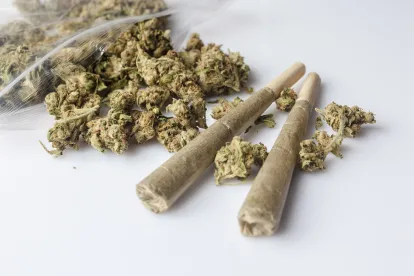In a prior post, we examined whether state-licensed marijuana businesses, and those doing business with marijuana businesses, can seek relief under the Bankruptcy Code. As we noted, the Office of the United States Trustee (the “UST”) has taken the position, most recently in Congressional testimony given in June 2017, that a marijuana business cannot seek bankruptcy relief because the business itself violates the Controlled Substances Act 21, U.S.C. §§ 801, et seq.(the “CSA”), notwithstanding their state licenses. The UST has also taken the position that those leasing commercial space to a state-licensed marijuana business are themselves precluded from accessing bankruptcy courts because the CSA makes no distinction between a seller or grower of marijuana and those renting space to the seller or grower.
Courts may be beginning to chip away at the UST’s position, at least at its outer fringes. On December 18, 2017, the District Court for the Western District of Washington ruled against an appeal brought by the UST, and affirmed the confirmation of a joint Chapter 11 plan proposed by a group of debtors, one of which had leased land to a state-licensed marijuana grower under a non-residential real property lease. Gail Brehm Geiger, Acting United States Trustee for Region 18 v. Cook Investments NW, SPNWY, LLC, et al. (In re Cook Investments NW SPNWY, LLC, et al.), Case No. 17-5516-BHS, Dkt. 16.
In Geiger, the tenant under the lease was Green Haven, a state-licensed marijuana grower. The lease prohibited Green Haven from using the land for any purpose other than growing marijuana. The UST took the position that the lease to Green Haven violated the provisions of the CSA and moved to dismiss the Debtors’ cases for cause by alleging gross mismanagement of the estate. The motion was denied without prejudice, however, because the Debtors asserted that they were able to propose a plan that specifically rejected the Green Haven lease.
That is exactly what happened. The Debtors subsequently moved to reject the Green Haven lease and filed an amended plan of reorganization that did not depend at all on the continuation of the Green Haven lease or revenue generated from the tenant’s marijuana business. The UST nonetheless objected to the amended plan, arguing that it violated Section 1129(a)(3) of the Bankruptcy Code, which requires a plan to be “proposed in good faith and not by any means forbidden by law.” The UST argued that “any confirmation order and related plan injunction entered in this case would tacitly promote ongoing criminal conduct” regardless of the rejection of the Green Haven lease, and the plan was therefore proposed by a means forbidden by law. The bankruptcy court rejected the UST’s argument and confirmed the amended plan, ruling that, while it must consider whether a plan is premised on known illegal behavior, there was no such behavior because the Green Haven lease had been rejected and all payments under the amended plan would be made from non-marijuana business income.
On appeal, the UST argued that, under the plain meaning of Section 1129(a)(3), a court “cannot confirm a plan whose substance envisions or perpetuates illegal activity.” The district court rejected this broad interpretation, ruling that “envision” and “perpetuate” both go beyond the scope of the phrase “by any means forbidden by law” and would, in effect, turn the bankruptcy court into a regulatory or criminal court. Instead, the court held that, at most, Section 1129(a)(3) allows the bankruptcy court to limit its review to the four corners of the plan in order to ensure that the plan does not depend upon any known violation of the law. Because the Green Haven lease had already been rejected and distributions were not based upon revenue generated from the tenant’s marijuana business, the amended plan was not based upon illegal activity and did not violate Section 1129(a)(3). For these reasons, the district court affirmed the confirmation of the amended plan.
It is too soon for those doing business with legal marijuana businesses to celebrate. The district court would likely have reached a different result if the Debtors were still leasing property to Green Haven or if the plan was otherwise based upon a known illegal activity. Nonetheless, the court’s decision demonstrates that simply engaging in business with a legal marijuana business is not a per se bar against accessing the bankruptcy courts. A debtor would need to cleanse itself from the “taint” of a legal marijuana business, whether by rejecting the relevant contract or lease or by proposing a plan that is no way dependent upon marijuana-related income or some other known illegal activity. This is indeed a small step for those doing business with marijuana businesses, but the court’s decision in Geiger may be the start of chipping away at what some people see as the UST’s draconian marijuana position. However, the national political landscape regarding the legalization of marijuana is continually changing, with Attorney General Jeff Sessions having recently rescinded memoranda from the Obama administration that had adopted a policy of not interfering with state laws favorable to marijuana use. Businesses must not only keep a sharp eye on the legal landscape regarding these issues, but on the political landscape as well as we begin to grapple with what could be a highly profitable and competitive emerging business industry.




 />i
/>i

